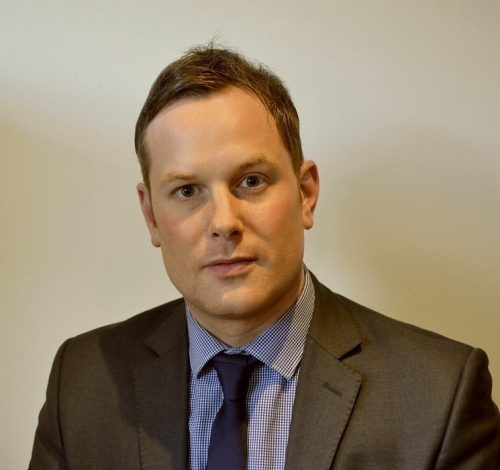
Aiming higher – innovation through collaboration in higher education
Alex Denley, Deputy Director – Innovation & Transformation at South Bank University’s Technopark, explains why he wanted to trial Cisco’s Webex collaboration technology, the benefits experienced by staff so far – and how this is just the beginning.

Alex Denley
New ways of working
Conventional work patterns are disappearing, with fewer people working the traditional 9-5 day and more of us travelling to meetings and collaborating with colleagues around the globe.
That’s certainly the case in my world anyway. And these shifts require new, smarter ways of working.
Here at London South Bank University for example, we operate across a sprawling campus. Our staff have to navigate one of the busiest areas of central London to reach their desks. They also attend meetings in other departments; sometimes just a short walk away, sometimes at locations that can only be reached via public transport or taxi. Then they’ll head off back to their desks before going to another meeting or two, followed by a weary commute home.
No matter how short the distance to each meeting, it only takes a signalling failure on the underground to cause chaos, leaving people stranded, offline and unable to work.
This has been top of mind for me recently as I’ve watched my team start to benefit from our Cisco Webex pilot.
Best of both worlds
My role is about combining innovation, transformation and IT – and this is something we have definitely achieved since starting this trial. For example, the flexible working environment supported by Webex means employees no longer need to travel to and from every meeting. And if someone has temporary childminding or other family care issues, they can simply dial into a call in seconds from home.
But it’s about more than personal convenience; this approach benefits the university too, by cutting travel costs and supporting a more efficient workforce, creating an environment where we’re all more accessible and available to each other, regardless of location.
It’s an enjoyable medium too; seeing each other onscreen and using the whiteboard and screen sharing facilities are fun and help us work more effectively together, from sharing ideas and presentations to contributing to each other’s projects.
Senior team members have actively been using Webex, appreciating its convenience and ease of use. They have already hosted a number of key meetings using the technology and feedback has been excellent. As for our international team, it has genuinely transformed how we work together, as well as potentially reducing our global travel budget. A multitude of global webinars have happened, enhancing our reach to our colleagues and students.
Next steps
I’ve tried other video conferencing system but only Webex ticks all the boxes. Easy to set up and use, it can also cope easily with the ‘heavy duty’ connectivity we need in our world – from one-to-one meetings to calls with hundreds – even thousands – of participants.
As for the future, I see huge advantages in extending its use to students beyond our international intake. Practically all of us now spend a significant proportion of our working day online, but our younger undergraduates have grown up in a connected world. Delivering classes and courses digitally, with staff and resources available on-campus or off – via any device – is therefore the logical next step for them.
We also have the highest population of mature students in the UK, and I am sure many of them would welcome the flexibility of online study and communication with tutors.
Connect to communicate
Face-to-face meetings should never be completely replaced, but with almost 18000 students and 1700 staff, virtual calls enables instant communication with multiple participants, regardless of whether they are half a mile away or on another continent.
Our Webex journey is just beginning, but has made us feel like innovators, which should be any university’s ambition. It is fast becoming a natural part of my team’s working day; unobtrusive and largely unnoticed. Yet I know there would be complaints if it was taken away.
Which is probably the highest praise of all.
Tags:


